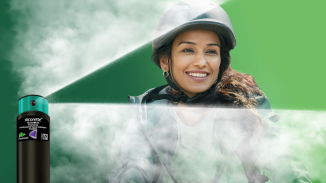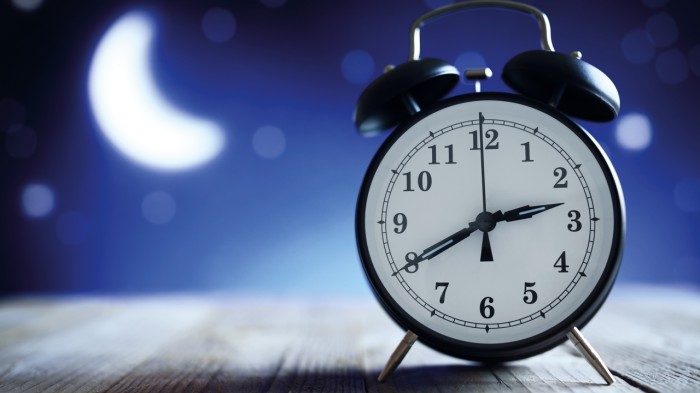In Clinical
Let’s get clinical. Follow the links below to find out more about the latest clinical insight in community pharmacy.Bookmark
Learning objectives
After reading this feature you should be able to:
- Appreciate the wider impact of insomnia on quality of life
- Identify some common causes of sleeplessness
- Provide sleep hygiene and lifestyle advice.
Sleep crisis
A recent survey of GPs and pharmacists by consumer healthcare company Perrigo found that 84 per cent believe their patients’ sleep issues will increase in the next five years.
“We are in the grip of a sleep crisis in the UK and the problem is set to get worse,” says Farah Ali, superintendent pharmacist at Warman-Freed, Perrigo’s ‘learning pharmacy’, “and as healthcare professionals, how we respond to this will be important in helping the country to better manage these issues.”
In another survey, this time for essential oil manufacturer Puressentiel, 93 per cent of people said they sometimes experience sleep disruption, difficulty getting to sleep or waking too early, with almost half (48 per cent) saying it was a regular occurrence.
So why are so many of us not sleeping? Puressentiel’s data shows a variety of reasons:
- Stress (50 per cent)
- Anxiety (48 per cent)
- Having too many thoughts going through the mind (48 per cent)
- Checking mobile phones while in bed (20 per cent)
- Watching TV in bed (10 per cent)
- Menopause (10 per cent).
The pandemic has also played a part in creating stress and sleepless nights. Two-thirds of those polled by Puressentiel reported higher stress levels, with 27 per cent experiencing almost daily episodes of anxiety and 55 per cent confirming a change in sleep patterns since Covid.
“This is very worrying as all the evidence suggests that routine and regularity are critical for good quality sleep,” says Professor Jason Ellis, director of the Northumbria Centre for Sleep Research.
Sleep cycle
Over the course of the night, sleep is made up of several rounds of the sleep cycle. A typical night could see a person going through four to six sleep cycles. These are not all the same length but, on average, will each take about 90 minutes.
The four stages of a sleep cycle
This is essentially the “dozing off” stage and normally lasts from one to five minutes. The body hasn’t fully relaxed, although body and brain activity starts to slow with periods of brief movements (twitches). There are light changes in brain activity associated with falling asleep in this stage.
The body enters a more subdued state with a drop in temperature, relaxed muscles, and slowed breathing and heart rate. Brain waves show a new pattern and eye movement stops. This stage can last for 10-25 minutes during the first sleep cycle, and each N2 stage can become longer during the night. Collectively, a person typically spends about half their sleep time in N2 sleep.
Also known as deep sleep, it is harder to wake someone up if they are in this phase of sleep. Muscle tone, pulse and breathing rate decrease in N3 sleep as the body relaxes even further.
This stage is now thought to be critical to restorative sleep, allowing for bodily recovery and growth. It may also bolster the immune system and other key physiological processes. Even though brain activity is reduced, there is evidence that deep sleep contributes to insightful thinking, creativity and memory.1
Most time during the first half of the night is spent in deep sleep. In the early sleep cycles, N3 stages commonly last for 20-40 minutes but as sleep continues, these stages get shorter and more time is spent in REM sleep.
During this stage, brain activity picks up, nearing levels seen while awake. At the same time, the body experiences atonia (a temporary paralysis of the muscles) with two exceptions: the eyes and the muscles that control breathing. Even though the eyes are closed, they can be seen moving quickly, which is how this stage gets its name.
REM sleep is believed to be essential to cognitive functions like memory, learning and creativity. The increase in brain activity may explain the vivid dreams that occur at this stage.
The first sleep cycle is often the shortest, ranging from 70-100 minutes, says the Sleep Foundation, while later cycles tend to fall between 90 and 120 minutes. The composition of each cycle – how much time is spent in each sleep stage – changes as the night goes on. REM stages get longer, especially in the second half of the night. While the first REM stage may last only a few minutes, later stages can last for around an hour. In total, REM stages make up around 25 per cent of sleep in adults.1
It should be remembered that sleep cycles can vary from person to person and from night to night based on a wide range of factors such as age, recent sleep patterns and alcohol consumption.
Health risks
Most adults require between six and nine hours’ sleep each night to function physically and mentally at their best and, while there is no specific number of hours required by children at different ages, experts tend to agree that seven to 14-year-olds need around nine to 10 hours’ sleep.
Poor sleep on a regular basis contributes to an increased risk of a range of serious conditions including obesity, heart disease and type 2 diabetes, as well as mental health issues.
Professor Ellis says there are “dozens of studies” detailing the impact sleep disruption has on metabolism, hormone regulation and even gene expression, and a lack of sleep can also result in an increase in the stress hormone, cortisol, as well as hunger hormones, leaving people with cravings for high-sugar foods, which further heighten cortisol levels.
“People who average less than six hours’ sleep a night are about 2.5 times more likely to experience frequent mental distress,” says Professor Ellis, “and as most of us know from experience, even low levels of sleep disruption can undermine our cognitive performance and wellbeing.” This creates a valuable opportunity for pharmacy teams to help.
Pharmacy advice
The first place to start when helping people tackle insomnia and stress is by offering some basic sleep hygiene tips. Naresh Rallmil, Numark lead information pharmacist, says these should include advising people to:
- Establish a bedtime routine with a sleep schedule that dictates when they go to sleep and wake up. This includes avoiding naps during the day
- Relax for at least one hour before bedtime by taking a bath or reading a book
- Avoid screen time as it can cause over-stimulation of the mind. Additionally, the blue light from screens can suppress melatonin levels, which are responsible for the sleep-wake cycle
- Keep the bedroom dark with no bright lights to prevent a blue light depletion of melatonin
- Create a conducive sleep environment with a comfortable bed and a good pillow.
NICE recommends offering app-based treatment
Hundreds of thousands of people suffering from insomnia who would usually be prescribed sleeping pills could be offered an app-based treatment programme instead, says NICE.
The Sleepio app uses an artificial intelligence (AI) algorithm to provide tailored digital cognitive behavioural therapy for insomnia (CBT-I). Up to 800,000 people could benefit from using Sleepio in England, says NICE.
The app provides users with a digital six-week self-help programme involving a sleep test, weekly interactive CBT-I sessions and keeping a diary about their sleeping patterns. The series of sessions focus on identifying thoughts, feelings and behaviours that contribute to the symptoms of insomnia. Cognitive interventions aim to improve the way a person thinks about sleep and the behavioural interventions aim to promote a healthy sleep routine.
“Our rigorous, transparent and evidence-based analysis has found that Sleepio is cost saving for the NHS compared with usual treatments in primary care. It will also reduce…reliance on dependence-forming drugs such as zolpidem and zopiclone,” says Jeanette Kusel, acting director for med-tech and digital at NICE.
“This is a good example of where digital health technology can help the NHS. The evidence has shown using Sleepio reduces the number of GP appointments people with insomnia need and will also cut the number of prescriptions for sleeping pills delivered by pharmacists.”
The cost of Sleepio is £45 (excluding VAT) per person who starts the first session.
Clean sheets
Actual hygiene is also something that may need to be addressed. “Our skin is our body’s largest immune system organ and while we are sleeping it is exposed to a combination of sweat, saliva, dandruff, dead skin cells, food particles, pet dander, dust mites and their excrement,” says Tracy Wright, physiotherapist and co-founder of the CleanMyBed medical-grade chemical-free allergen removal system.
“Not only does this trigger allergic reactions which disrupt sleep, but it also creates the perfect humid environment for bacteria, viruses, fungi and mould to live.” To avoid sleeping in what she calls “a petri dish” and enhance the quality of sleep, Wright’s advice for a better night’s sleep is to:
- Change and wash linen on a hot wash (40-600C) at least once a week
- Shower before bed
- Avoid sharing a bed with pets
- Vacuum mattresses regularly, preferably with a specific HEPA-13 filter on the vacuum, or get them professionally cleaned.
Non-drug interventions
Lifestyle advice is another area where pharmacy teams are key to helping poor sleepers.
“Poor sleep quality can happen at any age but is common among older adults,” says Sue Swift, Numark Drug Tariff and information technician. This can be down to factors ranging from major lifestyle changes to the onset of chronic conditions – but tackling them doesn’t have to mean resorting to medication, she says.
“For example, customers should aim for 20-30 minutes of exercise three or four times a week that is tailored to their physical condition and undertaken during daytime hours. This can help them sleep better, as well as providing them with more energy while they are awake.”
Seventy-two per cent of respondents to the Puressentiel survey believed their mood and stress levels improved when they went for a walk.
Heavy meals, smoking, drinking alcohol or caffeinated drinks should all be avoided before bedtime, says Swift. “A warm cup of milk can be beneficial as it simulates the effects of tryptophan, which in turn increases melatonin and helps to deliver a restful night’s sleep”.
For customers who find they frequently toss and turn for upwards of 20 minutes, “recommend ear plugs, sleep masks and white noise machines”. Breathing exercises can also help, she says.
Lavender essential oil has long been used to reduce stress and encourage sleep. Puressentiel’s Dr Tim Bond says studies have shown the scent of lavender produces “significant improvements in anxiety and mood in ICU patients and women with postpartum depression, as well as reducing anxiety in dental patients”.
What is social anxiety?
Social anxiety disorder, also called social phobia, is an overwhelming fear of social situations. It is a common problem that usually starts during teenage years and although some people find it gets better as they get older, others find it does not go away without treatment.
Symptoms of social anxiety include:
- Worrying about everyday activities such as meeting strangers, speaking on the phone, working or shopping
- Avoiding or worrying about social activities
- Worrying about blushing, sweating or appearing incompetent
- Finding it difficult to do things when others are watching
- Fear of being criticised
- Avoiding eye contact or having low self-esteem
- Panic attacks or palpitations.
Many people with social anxiety also have other mental health issues such as depression, generalised anxiety disorder or panic disorder. Any customers suspected of having social anxiety should be referred to their GP for further appropriate support and treatment such as CBT or antidepressants. People can also refer themselves directly to a NHS psychological therapies service (IAPT) without a referral from a GP.
There are numerous support groups and online forums for people with anxiety disorders including social anxiety, such as:
- Anxiety UK
- A HealthUnlocked anxiety forum run by Anxiety Support
- Mind and Young Minds
- Social Anxiety UK
- Triumph Over Phobia (TOP UK)
Herbal helpers
In addition to lavender there are a number of herbs that have a history of traditional use when it comes to relieving insomnia and stress, all of which are available on pharmacy shelves.
“Valerian has been taken for centuries as an aid to sleep and can also act as a calming agent in stressful daytime situations, with research showing that it helps people to fall asleep more quickly and improves the quality of their sleep,” says Dr Chris Etheridge, medical herbalist and chair of the British Herbal Medicines Association.
“Passionflower is also used to relieve anxiety and is often used in combination with valerian to reduce anxiety-induced insomnia. Hops in combination with valerian and passionflower can be particularly effective – with an added benefit for menopausal women because they contain compounds that are phyto-oestrogenic, helping to reduce the frequency of hot flushes and night sweats,” adds Dr Etheridge.
As already mentioned, lavender is a popular herb for aiding relaxation and sleep. Most studies investigating the effect of lavender on sleep have focused on silexan, which is an active substance derived from the herb.
Clinical options
There are a range of OTC, prescription and clinical management options that pharmacists and their teams can recommend to tackle continuing insomnia and stress.
“The natural hormone melatonin can be prescribed in tablet form, but is only licensed as a short-term treatment for insomnia, and only for people over 55 years in the UK,” says Etheridge.
Although not suitable for everyone, anti-histamines can be appropriate for some people to take as an alternative to prescription drugs for insomnia. These should only be used short-term and will not address the underlying causes of insomnia. Since these antihistamines cause drowsiness, individuals who will be driving or operating machinery the following day should avoid using them.
If non-drug measures have failed and the customer’s insomnia is severe, prescription medicines can be considered but caution is required. The Z-drugs (zopiclone, zolpidem and zaleplon) or benzodiazepines, such as temazepam, diazepam and nitrazepam, can be prescribed but long-term use is not recommended and they should only be prescribed for a maximum of two weeks.
Puressentiel’s data shows a potentially worrying focus on using medication as a quick fix for sleep issues, with one in five adults admitting they have had a prescription for sleeping tablets at some point, and almost half of this group (47 per cent) saying they had been prescribed medication since the pandemic began.
Other options
If poor sleep is caused by stress or anxiety, cognitive behavioural therapy can be suggested to provide support with stimulus control, sleep restriction and relaxation training. For those customers who struggle with stress or depression, there is the option of prescribed antidepressants should non-drug strategies fail.
On talking to customers in more depth, Chris Etheridge says pharmacists may discover “other factors at play such as acute and chronic pain, which can negatively affect sleep, or snoring and sleep apnoea, which can inhibit proper sleep and should be addressed.”
Time to step up sleep support
Adrian Zacher, chief executive of the British Society of Pharmacy Sleep Services (BSPSS), says the pandemic has “raised the bar” for healthcare professionals when it comes
to sleep disorders — and it is time to step up.
The aim of the BSPSS, he says, is to “dramatically improve on the quality and accessibility of sleep expertise accessible in community pharmacies through bespoke professional training and patient education materials.
“Sleep issues span the generations and affect a large proportion of the population. Our plan will have a lasting impact upon the mental health and resilience of the entire community, as well as freeing up invaluable GP time.
“Through accessible, earliest possible intervention, we can support people in need of sleep expertise and help them cope, adapt and prosper.”
Further information
- British Society of Pharmacy Sleep Services: offers free training for pharmacists
- NHS psychological therapies service (IAPT)
Key facts
- Sleep is made up of several rounds of the sleep cycle
- Offering some basic sleep hygiene tips can help people tackle insomnia and other sleep-related problems
- NICE recommends an app rather than medication for sleep problems.
Reference
Sponsored
 Sponsored education
Sponsored education
A different approach to pain
Complete this interactive video to rethink your pain recommendations and ensure you offer every customer the most appropriate advice
 Sponsored education
Sponsored education
Helping vapers find a path to quit
Help vapers find a path to a nicotine-free life when they are ready to quit with the first NRT product licensed for this indication


Record my learning outcomes